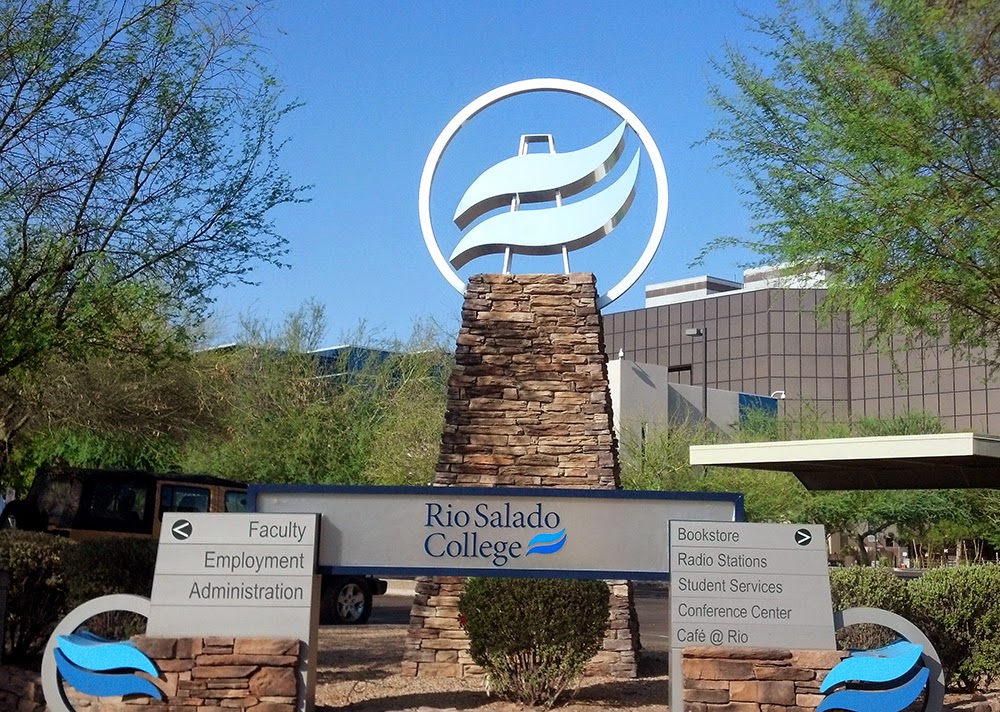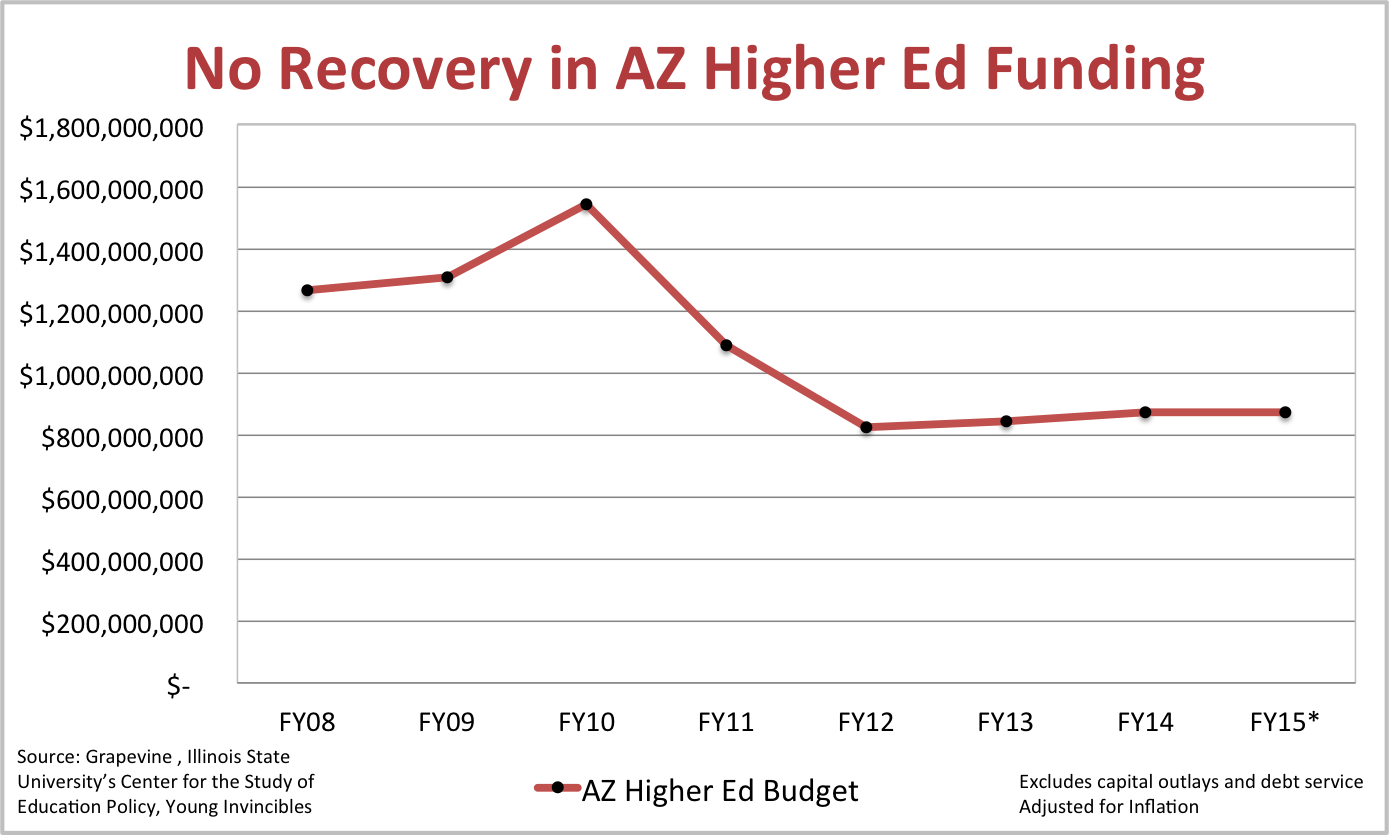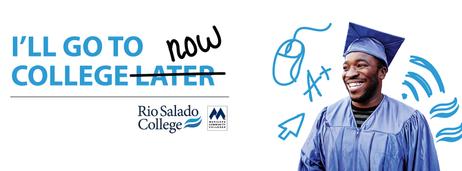In the face of many difficulties, including massive budget cuts, low graduation rates, and students who need an abundance of guidance and support to stay on track, community colleges throughout the nation are finding ways to keep their doors open and graduate students on time. No school has been more successful in making the most of a less-than-ideal situation than Rio Salado College.
Rio Salado is part of the Maricopa Community College District, a ten-campus system in Phoenix that offers over 10,000 courses for its 250,000 students on campus and online. It is one of the largest higher education institutions in the United States. Rio Salado accounts for roughly 60,000 of the system's students, many of whom attend part-time to accommodate work schedules and family needs due to economic disadvantages.

Students who come from poverty have the odds stacked against them about graduation. The graduation rate for community college students in the United States is at most 40 percent, but that number falls drastically for poor and working-class students. According to the New York Times, only about one-quarter of first-year college students born into families in the bottom half of the income spectrum will go on to get an undergraduate degree within six years. Yet, 90 percent of students in the top one-quarter of the income spectrum will obtain their degree. Socioeconomic status will significantly determine whether a student gets a degree.
Robust Student Support
Rio Salado has implemented a series of support programs to ensure each student has the resources to succeed, particularly economically disadvantaged students who require remedial classes before they can begin coursework in their degree program. The school utilizes an automated computer program to identify how well a student will do in any given course within a week of that student's first day of class. Those identified as at-risk receive services ranging from placement in a remedial course to a phone call from an adviser. The role of advisers at Rio Salado is vital because every student receives a phone call or a visit several times throughout the semester to check their progress.
For online students, of which there are many at Rio Salado, help is just a phone call away, and in some cases, help is automatically summoned. Students who make excessive calls to the technology help desk and those who don't log in to their online classroom frequently enough will be automatically contacted. Since the completion rate for online courses is at least 8 percent lower than face-to-face courses, Rio Salado assigns every online student a mentor who checks in at the time of enrollment, midterms, and finals to ensure students stay on track. It's all part of an effort by faculty and staff at the college to help students before they have a chance to fail. In so doing, Rio Salado can reduce the negative factors that lead to students' stagnation or dropout by having staff members more involved in the educational process of their students.
This video explains the online dashboard called the Dynamic Assessment Data Display (DADD) to gauge student soft skills and to ensure equitable instruction at the Rio Salado Colleges.
The college also has changed how remedial courses – which 60 percent of Rio Salado's students must take – are delivered. Courses are offered more often and at more locations to accommodate more students. Classes are also accelerated into as little as eight weeks, allowing students to complete these non-credit courses much faster and get to their 'real' coursework before they become mired in the struggle of primary education. Students in remedial classes must also periodically meet with an adviser, which studies show improves a student's chances for success.
Students who complete their studies at Rio Salado have an easier time transferring to another institution to continue their studies thanks to the school's efforts to streamline an otherwise long and confusing process that can involve miles and miles of red tape. Throughout the Maricopa system, course numbers, names of offices and departments, and paperwork are all standardized. An agreement between Maricopa and Arizona State University eases students' transition into degree programs at ASU. Students who successfully undertake a specific set of classes at Maricopa are even guaranteed admission to ASU.
Budget Cuts Force Change
The efforts by Rio Salado to retain and graduate students aren't just to help their students realize their dreams. Another impetus for their innovative approach to education is one of survival. Community colleges have long been asked to do more with less. At the same time, per-student funding for private research universities grew by an average of $14,000 between 1999 and 2009, and community college funding increased by a single dollar per student. Further compounding the issue, colleges have had to deal with extensive budget cuts, including reduced state funding. California's community college system, which has 112 institutions and 2.1 million students, is the country's most comprehensive education system, and per-student funding has decreased by 24 percent in just five years.

However, no other state has cut higher education funding as much as Arizona – nearly 50 percent in the last six years. In the mid-1980s, the Maricopa Community College District could rely on the state to fund over a quarter of its annual budget. Today, the state's contributions account for just 1 percent. To compensate for that lack of funding, Rio Salado is forced to rely heavily on local property taxes and tuition, which account for 57 percent and 27 percent of the school's total revenue, respectively. Thus, ensuring students stay in school and matriculate is essential to the school's bottom line.
Run Like a Business
Although Rio Salado is a community college, in many regards, it is run like a for-profit business. Online courses allow the school to expand its reach far beyond Phoenix. Currently, there are students from 46 states taking a course at the college, which charges three times the price for an online class as it does for a traditional face-to-face course. The college has also taken a page from other community colleges nationwide and developed a corporate college to provide job training and skills development services to large corporations, including those in the tourism and hospitality industries. Rio Salado also offers accelerated semesters to boost enrollment by enticing students to 'get their degree quickly.'
This sales-pitch approach to education has not gone without skepticism from some faculty members at Rio Salado. With specific for-profit colleges' recent high-profile legal troubles, some worry that taking a more entrepreneurial approach will negatively impact the school's reputation. Yet, by relying on taxpayer money and tuition to survive, the college owes it to the community to be customer-service oriented, respond to local consumers' demands and needs, and offer programs that allow the college to compete in a flooded higher education market.
Successes for Rio Salado
The most tremendous success seen at Rio Salado thus far is their incredibly high graduation rate, which currently stands four times that of comparable institutions! The school has accomplished this even though many of its students are going to college for the first time, come from poverty, attend school part-time, or are minorities, all of which are factors that work against a student graduating from college. Another big success for the institution is that they have made up for drastic cuts to their budgets by diversifying their course offerings and programs. Continuing to serve 60,000 students with a quality education in light of reduced state funding is a point of pride for Rio Salado.
This video offers an overview of the Rio Salado Colleges.
Not everything has been smooth sailing, though. Although most faculty members are on board with the school's attempts to be innovative, about 10 percent of them have quit after years of stagnant salaries. Others are up in arms over the school's heavy reliance on part-time instructors, who outnumber full-time faculty by more than 65-1. Allegations of fraud regarding federal funding, disagreements among the school's governing board, and local backlash over a program that offers in-state tuition to children of undocumented workers are just a few of the other negative distractions the school has faced in recent months.
However, Rio Salado and the other schools within the Maricopa Community College District continue moving forward, devising cutting-edge programs to attract students, implementing support services to keep those students on track, and making the most of what funding they have. Although none of the reforms Rio Salado has implemented are groundbreaking or even uncommon, what is unusual is the breadth and depth of the reforms they've undertaken and the success they've had in making a college degree a reality for students who might fail elsewhere.
Questions? Contact us on Facebook. @communitycollegereview












